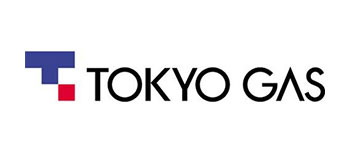Tokyo Gas to break into Vietnamese LNG market
 |
According to the Asian Nikkei Review, Tokyo Gas is going to invest a few billion US dollars into the joint venture and hold a stake of 10 to 20 per cent, while PV Gas, a subsidiary of state-run Vietnam Oil and Gas Group, will hold majority. Tokyo Gas will have representatives in the board of directors.
The joint venture is going to launch feasibility studies to explore the possibility of building an LNG plant for storage and pipelines to create a supply network. If the studies look promising, the scale of the joint venture will likely be expanded.
Leaders of Tokyo Gas and PV Gas met in May to discuss a plan for investment in the construction and operation of Thi Vai LNG warehouse in Cai Mep Industrial Zone in the southern province of Ba Ria-Vung Tau, as well as the expansion and management of LNG warehouse infrastructure and the development of the Vietnamese LNG market in the future.
Earlier, in March, leaders of Gazprom Neft and PetroVietnam also met to discuss a potential deal to supply liquefied natural gas to Vietnam. Late last year, Gazprom was considering building an LNG terminal in the southern province of Dong Nai.
In 2014, Royal Dutch Shell signed an agreement with PV Gas on supplying LNG to the one-million-tonne-per-year Thi Vai LNG terminal (in Ba Ria-Vung Tau province). The terminal is scheduled to be completed and start operation in 2019-2020.
However, in a report on 2015 operations and plan for 2016 submitted to its shareholders, PV Gas said it had temporarily put on hold work on the terminal at parent company PetroVietnam’s request to review market demand.
In Vietnam, LNG is mainly used as a source of energy by industrial producers and fertilizer plants or as fuel for gas-fired power plants.
| RELATED CONTENTS: | |
| Firms promote use of CNG in transport sector | |
What the stars mean:
★ Poor ★ ★ Promising ★★★ Good ★★★★ Very good ★★★★★ Exceptional
Latest News
More News
- Hermes joins Long Thanh cargo terminal development (February 04, 2026 | 15:59)
- SCG enhances production and distribution in Vietnam (February 04, 2026 | 08:00)
- UNIVACCO strengthens Asia expansion with Vietnam facility (February 03, 2026 | 08:00)
- Cai Mep Ha Port project wins approval with $1.95bn investment (February 02, 2026 | 16:17)
- Repositioning Vietnam in Asia’s manufacturing race (February 02, 2026 | 16:00)
- Manufacturing growth remains solid in early 2026 (February 02, 2026 | 15:28)
- Navigating venture capital trends across the continent (February 02, 2026 | 14:00)
- Motivations to achieve high growth (February 02, 2026 | 11:00)
- Capacity and regulations among British areas of expertise in IFCs (February 02, 2026 | 09:09)
- Transition underway in German investment across Vietnam (February 02, 2026 | 08:00)
















 Mobile Version
Mobile Version